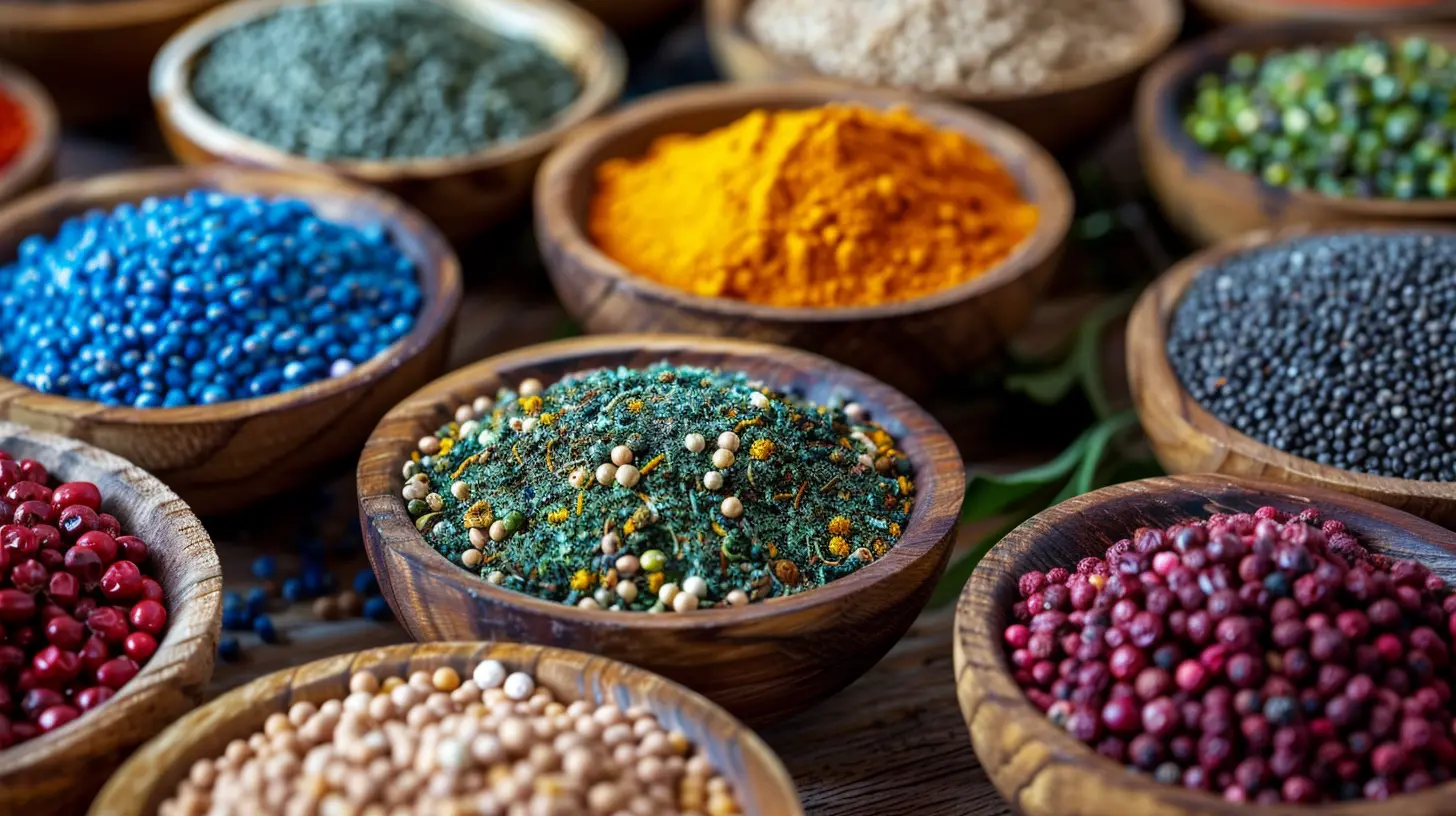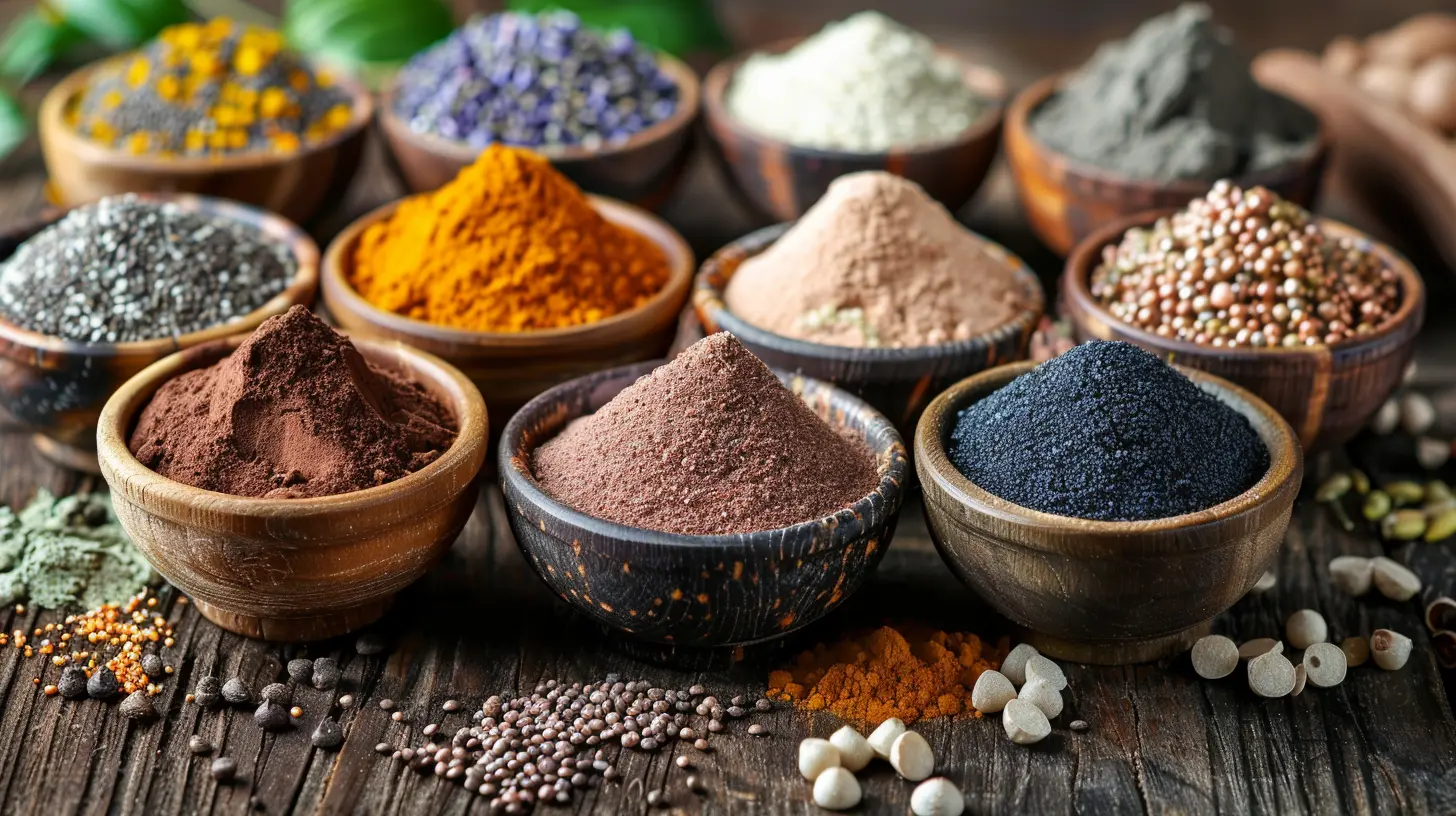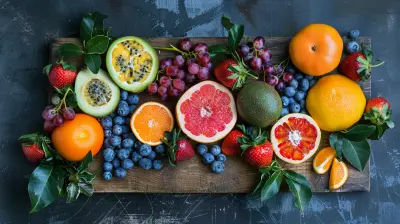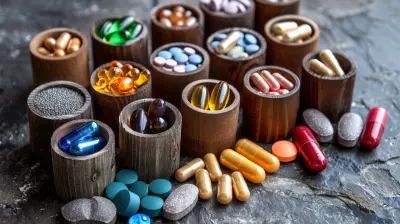19 December 2024
When we think about essential nutrients for our bodies, the spotlight often falls on macronutrients like carbs, fats, and proteins, or perhaps on vitamins like C and D. But have you ever stopped to wonder about phosphorus? Yeah, the name might not roll off the tongue as easily as calcium or magnesium, but trust me, phosphorus is no sidekick in the nutrient game—it's a superstar.
So buckle up, and let’s dive into all things phosphorus! By the end of this article, you’ll get why this mineral isn’t just hanging out in your body for kicks—it’s a critical player in your metabolism and overall health. 
What Is Phosphorus, Anyway?
Let’s start with the basics. Phosphorus is a mineral, and it’s the second most abundant one in your body (calcium takes the crown here). It’s found in every cell of your body, not just chilling but working hard to keep you alive.About 85% of the phosphorus in your body is housed in your bones and teeth. The rest? It’s busy circulating in your blood and other tissues. Phosphorus is mostly in the form of phosphate (a chemical compound that contains phosphorus, oxygen, and hydrogen).
But here’s the thing—phosphorus doesn’t just sit pretty in your bones. It plays a role in some fundamental processes, including energy production, DNA synthesis, and maintaining your pH balance. In short, it’s like the Swiss Army knife of minerals. 
Why Is Phosphorus Important for Metabolism?
Now to the big question: how does phosphorus fit into metabolism? To understand this, we need to get into a bit of biochemistry (don’t worry—I’ll keep it simple).Metabolism is basically your body’s way of converting food into energy and other essential compounds. Phosphorus is directly involved in two key processes:
1. Energy Production
Ever heard of ATP (adenosine triphosphate)? It’s the molecule that provides energy for almost all biological processes in your body. ATP is often called the "energy currency" of the cell. Here’s the kicker: every ATP molecule has phosphorus in it—three phosphate groups, to be precise!Without phosphorus, there’s no ATP. And without ATP, well, your body would basically be like a car with no fuel. Even blinking or thinking would be a challenge. That’s how crucial phosphorus is for energy production.
2. Cellular Building Blocks
Phosphorus is also a component of DNA and RNA, the genetic materials in your cells. Think of DNA as the instruction manual for running your body. Without phosphorus, you wouldn’t have the "spine" of the manual, literally.And it doesn’t stop there—phosphorus is part of phospholipids, which make up the membranes of your cells. These membranes aren’t just barriers; they’re also gateways for nutrients and signals. So yes, phosphorus is the glue holding you together, quite literally! 
Other Health Benefits of Phosphorus
Okay, so we know phosphorus is vital for metabolism, but that’s not all it does. This mineral has its fingers in a lot of health pies.1. Bone and Teeth Health
Phosphorus teams up with calcium to build and maintain strong bones and teeth. It’s like Batman and Robin—they complement each other perfectly. Without phosphorus, calcium couldn’t do its job properly.2. pH Balance
Your body is constantly working to maintain the right pH levels in your blood (it’s a balancing act worthy of a tightrope walker!). Phosphorus acts as a buffer, making sure your body doesn’t become too acidic or too alkaline. This balance is crucial for proper cellular function.3. Improved Digestion and Elimination
Phosphorus helps the body process fats and carbohydrates effectively. It even plays a role in muscle contractions, which are essential for moving food through your digestive system.
Where Can You Get Phosphorus?
Great question! Luckily, phosphorus is abundant in many foods. So unless you have a specific health condition, you’re probably getting enough without even thinking about it.Here are some phosphorus-packed foods:
- Dairy Products: Milk, yogurt, and cheese are all rich in phosphorus.
- Meat and Poultry: Chicken, turkey, pork, and beef are great sources.
- Fish: Salmon, mackerel, and sardines pack a phosphorus punch.
- Plant-Based Sources: Lentils, beans, nuts, and seeds are good options for vegetarians and vegans.
- Whole Grains: Brown rice, oats, and whole wheat products also contain decent amounts of phosphorus.
Oh, and pro-tip: soft drinks and processed foods can have phosphorus in the form of additives, but these aren’t the healthiest sources. Stick to whole foods as much as possible!
What Happens If You Don’t Get Enough Phosphorus?
Phosphorus deficiency is rare, especially if you’re eating a balanced diet. But it can happen, particularly in cases of malnutrition, alcoholism, or certain medical conditions like diabetes or kidney disease.Symptoms of a deficiency might include:
- Weakness and fatigue
- Loss of appetite
- Muscle pain
- Bone pain
- Difficulty breathing
Long-term phosphorus deficiency can even lead to bone disorders, as your body will start robbing your bones of phosphorus to keep other systems running.
What Happens If You Get Too Much Phosphorus?
Like most things in life, balance is key. Too much phosphorus can be just as problematic as too little, especially if your kidneys aren't working properly.Excess phosphorus can mess with your calcium levels, potentially leading to brittle bones and an increased risk of cardiovascular disease. This is why it’s so important to get just the right amount—neither too little nor too much.
How Much Phosphorus Do You Actually Need?
The recommended daily allowance (RDA) for phosphorus varies by age and gender, but here’s a quick breakdown:- Adults: Around 700 mg per day
- Teenagers (Ages 9–18): 1,250 mg per day (they’re growing like weeds!)
- Children (Ages 1–8): 460–500 mg per day
Pregnant or breastfeeding women might need a little extra, depending on their doctor’s advice.
Can You Test Your Phosphorus Levels?
If you’re concerned about your phosphorus levels, a simple blood test can check them. This is often done as part of a routine metabolic panel.But unless you have specific symptoms or a condition that affects phosphorus metabolism (like kidney disease), most people don’t need to worry too much. Just focus on eating a balanced diet.
Final Thoughts
Phosphorus might not get the same love as calcium or iron, but it’s a heavy hitter when it comes to keeping your body running smoothly. From producing energy to building DNA, and from strengthening your bones to balancing your pH levels, phosphorus is crucial for your health and metabolism.The good news? Most of us get enough phosphorus from our diets without even trying. But as always, balance is the key. Too much or too little can cause issues, so make sure you’re eating a variety of nutrient-rich foods to keep your phosphorus (and everything else) in check.
Now that you know the ins and outs of phosphorus, give it a mental high-five for all the hard work it’s doing behind the scenes. Trust me, your body will thank you!








Pierce Jennings
Phosphorus is essential for energy production and bone health. Understanding its role in metabolism highlights the importance of balanced dietary intake for overall wellness and preventing deficiencies that can disrupt bodily functions.
February 16, 2025 at 5:12 AM